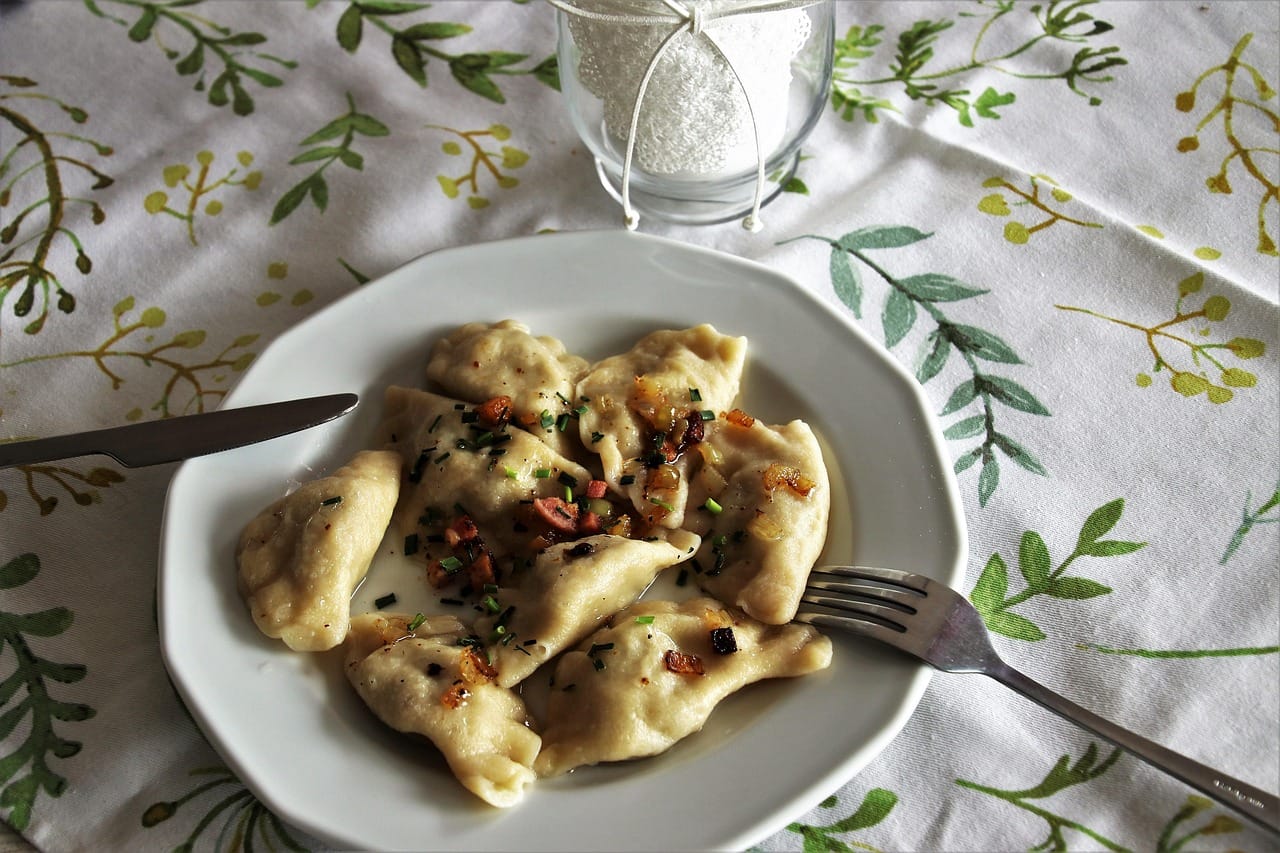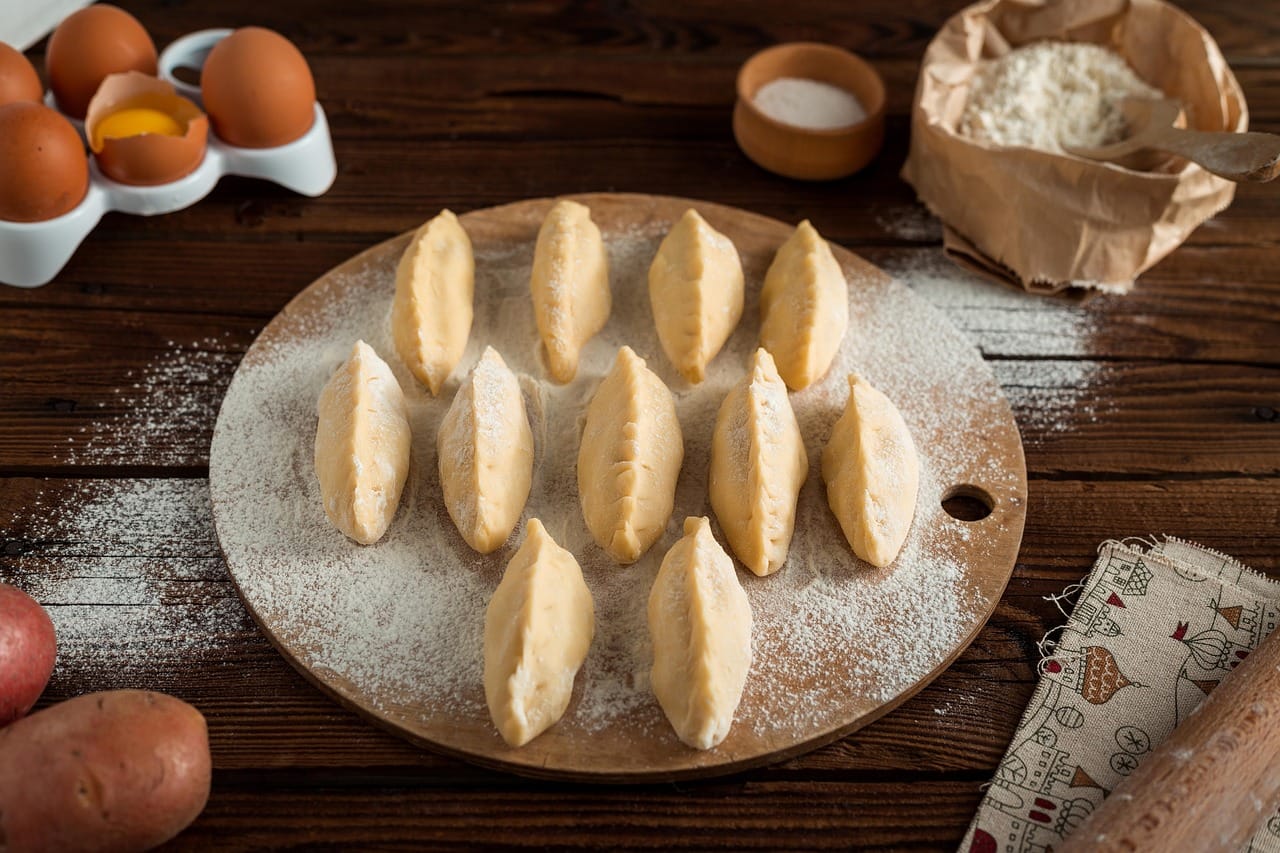Bruschetta, a simple yet elegant Italian appetizer, has captured the hearts (and stomachs!) of food lovers worldwide. More than just toasted bread, it’s a celebration of fresh, seasonal ingredients that come together in perfect harmony. Whether you’re hosting a sophisticated dinner party or simply looking for a delightful snack, mastering the art of bruschetta is a worthwhile culinary pursuit. This guide will walk you through everything you need to know about crafting the perfect bruschetta, from selecting the right bread to choosing the freshest toppings.
What Exactly is Bruschetta?
The Humble Origins of Bruschetta
Bruschetta (pronounced “broo-sketta”) originates from central Italy and has peasant origins. Traditionally, it was a way for farmers to salvage stale bread, rubbing it with garlic and drizzling it with olive oil to make it palatable. Over time, bruschetta evolved to include a variety of toppings, transforming it from a simple sustenance into a beloved appetizer.
Bruschetta vs. Crostini: What’s the Difference?
Often confused with crostini, bruschetta distinguishes itself primarily through the bread used. Bruschetta generally uses larger, thicker slices of rustic bread, like sourdough or country bread, grilled or toasted until slightly charred. Crostini, on the other hand, employs smaller, thinner slices of bread, often a baguette, that are baked until crispy. Think of bruschetta as a hearty, rustic appetizer, while crostini leans towards a more delicate and refined experience.
Key Takeaway
Bruschetta is a toasted bread appetizer with roots in Italy that traditionally uses a hearty, rustic style bread, as opposed to other variations.
Choosing the Perfect Bread
The Foundation of Flavor
The bread is arguably the most crucial component of bruschetta. A high-quality loaf will significantly impact the overall taste and texture.
- Ideal Bread Types: Sourdough, rustic Italian bread, ciabatta, or a country loaf are excellent choices. These breads have a firm texture that can withstand the toppings without becoming soggy.
- Freshness Matters: While bruschetta was originally a way to use stale bread, for optimal flavor, use bread that is a day or two old. This allows it to hold its shape and texture when toasted.
- Cutting the Bread: Slice the bread into approximately 1/2-inch to 3/4-inch thick slices. This thickness provides a good balance of crispness and chewiness.
Preparing the Bread
The toasting method can dramatically affect the final product.
- Grilling: Grilling the bread over an open flame imparts a smoky flavor and creates beautiful char marks. Brush the bread lightly with olive oil before grilling for added flavor and to prevent sticking.
- Toasting in the Oven: Preheat your oven to 375°F (190°C). Arrange the bread slices on a baking sheet and brush with olive oil. Bake for 8-10 minutes, or until golden brown and slightly crispy.
- Pan-Toasting: Heat a skillet over medium heat. Brush the bread with olive oil and toast for 2-3 minutes per side, or until golden brown.
- Garlic Rub: While the bread is still warm, rub a peeled garlic clove over the surface to infuse it with a subtle garlic flavor.
Key Takeaway
Select high-quality, slightly stale rustic bread, slice it properly, and toast or grill it to perfection, finishing with a fresh garlic rub.
The Art of the Toppings
Freshness is Paramount
The beauty of bruschetta lies in the simplicity and freshness of its toppings.
- Tomato Bruschetta (Bruschetta al Pomodoro): This is the most classic and popular variation.
Ingredients: Ripe tomatoes (Roma, heirloom, or cherry tomatoes work well), fresh basil, garlic, olive oil, balsamic vinegar (optional), salt, and pepper.
Preparation: Dice the tomatoes and combine them with chopped basil, minced garlic, olive oil, and a splash of balsamic vinegar (if using). Season with salt and pepper to taste. Allow the mixture to sit for at least 15 minutes to allow the flavors to meld. This step is crucial for optimal flavor.
- Other Popular Topping Ideas:
White Bean and Rosemary: Combine cannellini beans, rosemary, garlic, olive oil, and lemon juice.
Roasted Red Pepper and Goat Cheese: Roast red bell peppers until soft, then peel and slice. Top with goat cheese and a drizzle of olive oil.
Mushroom and Thyme: Sauté sliced mushrooms with garlic, thyme, and olive oil.
Prosciutto and Fig: Top with thinly sliced prosciutto, fresh fig slices, and a balsamic glaze.
* Pesto and Mozzarella: Spread pesto on the toasted bread and top with fresh mozzarella slices.
Building Your Bruschetta
- Timing is Key: Assemble the bruschetta just before serving to prevent the bread from becoming soggy.
- Drain Excess Moisture: If using juicy toppings like tomatoes, drain any excess moisture before placing them on the bread.
- Olive Oil Drizzle: A final drizzle of high-quality extra virgin olive oil is essential for enhancing the flavors.
- Garnish: Garnish with fresh herbs, such as basil, parsley, or oregano, for a pop of color and aroma.
Key Takeaway
Prioritize fresh, high-quality toppings and assemble your bruschetta just before serving to preserve the bread’s crispness.
Elevating Your Bruschetta Game
Cheese Considerations
Adding cheese can elevate your bruschetta to a whole new level.
- Fresh Mozzarella: A classic choice that complements tomato-based toppings perfectly.
- Goat Cheese: Adds a tangy and creamy element to roasted vegetable or prosciutto combinations.
- Ricotta: Creates a smooth and creamy base for sweet or savory toppings.
- Parmesan: Shaved parmesan adds a salty and nutty flavor.
Variations and Twists
- Sweet Bruschetta: Experiment with sweet toppings like ricotta cheese with honey and berries, or mascarpone cheese with fig jam.
- Spicy Bruschetta: Add a pinch of red pepper flakes to your tomato mixture or use a spicy olive oil for a kick.
- Bruschetta Bar: Create a bruschetta bar with a variety of breads, toppings, cheeses, and oils, allowing guests to customize their own creations.
Presentation Matters
- Arrangement: Arrange the bruschetta on a platter or serving board in an appealing manner.
- Garnish: Sprinkle with fresh herbs or a drizzle of balsamic glaze for a polished look.
- Pairing: Serve with a crisp white wine or a light-bodied red wine to complement the flavors.
Key Takeaway
Don’t be afraid to experiment with different cheeses, sweet or spicy variations, and presentation techniques to create a truly unique and memorable bruschetta experience.
Storage and Leftovers
Best Practices
Bruschetta is best enjoyed immediately after assembly. However, if you have leftover components, here’s how to store them:
- Toasted Bread: Store toasted bread in an airtight container at room temperature for up to 2 days.
- Toppings: Store leftover toppings in an airtight container in the refrigerator for up to 2 days.
Reheating
- Bread: Reheat toasted bread in a preheated oven at 350°F (175°C) for a few minutes to restore its crispness.
- Toppings: Some toppings, like roasted vegetables, can be gently reheated in a skillet or microwave. Avoid reheating toppings that contain fresh herbs or dairy products, as they may lose their flavor and texture.
Assembling Leftovers
Reassemble the bruschetta just before serving to maintain the best quality.
Key Takeaway
Bruschetta is best enjoyed fresh, but the components can be stored separately and reassembled later for a near-fresh experience.
Conclusion
Bruschetta is more than just a simple appetizer; it’s a culinary canvas that allows you to showcase the freshest seasonal ingredients and your own creative flair. By following these tips and techniques, you can confidently create delicious and impressive bruschetta that will delight your guests and elevate any occasion. From selecting the perfect bread to experimenting with diverse toppings, the possibilities are endless. So, gather your ingredients, unleash your creativity, and embark on your bruschetta-making journey!




